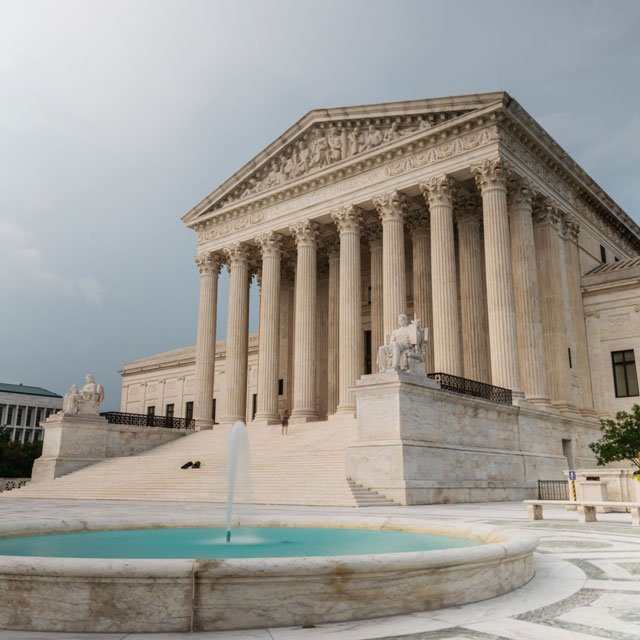What You Have to Know
- A pair owed $15,000 on an funding in an Indian farm on which they’d realized no positive factors.
- The case, Moore v. United States, might have implications for the controversy over wealth taxes.
- The DOJ has stated different provisions within the tax code enable for taxation of undistributed enterprise earnings.
The U.S. Supreme Court docket on Monday agreed to listen to a case analyzing whether or not Congress had the authority to enact a “repatriation tax” on previous overseas investments held by U.S. taxpayers who obtained no dividend, distribution or different cost.
The attraction by a California couple might loom over the constitutional debate surrounding “wealth taxes.”
Of their orders record, the justices stated they may contemplate the couple’s problem to the obligatory repatriation tax Congress handed as a part of the 2017 Tax Cuts and Jobs Act. The case might have main implications for Congress’ capacity to tax unrealized positive factors via a wealth tax or different new tax coverage.
The Supreme Court docket is predicted to render a choice earlier than July 2024.
The MRT was a one-time tax on the previous earnings of overseas corporations owned by U.S. nationals that the U.S. authorities estimated would generate $340 billion in income. It was meant as a technique to “repatriate” offshore income as the US shifted from a worldwide tax system towards a territorial one.
Below the repatriation tax, Charles and Kathleen Moore owed a further almost $15,000 in taxes over their investments in an Indian farm gear distributor, although they’d but to comprehend any positive factors from their stake within the firm as a result of all of its earnings have been reinvested again into the enterprise.
The case entails an advanced argument over the largely deserted “apportionment clause” of the Structure, which requires that “direct taxes” be divvied up among the many states primarily based on inhabitants. This provision is alleged to have originated over Southern fears about federal taxes immediately focusing on slavery or land possession, with apportionment requiring that Northern states additionally contribute towards an combination income objective.
Below the sixteenth Modification, nonetheless, federal earnings taxes don’t have to be apportioned. By the point of the modification’s ratification in 1913, apportionment had fallen out of favor as a technique of taxation. In response to one scholar, the final apportionment tax was handed by Congress in 1861.
The difficulty on the coronary heart of Moore v. United States is thus whether or not the MRT qualifies as an earnings tax exempt from apportionment, or a direct tax topic to that requirement.
A panel of the U.S. Court docket of Appeals for the Ninth Circuit stated the MRT will not be topic to apportionment. At backside, the appeals court docket stated, “whether or not the taxpayer has realized earnings doesn’t decide whether or not a tax is constitutional.”
The total appeals court docket refused to listen to the case en banc, prompting a robust dissent from Decide Patrick Bumatay, joined by three different judges. In response to Bumatay, the Ninth Circuit had “develop into the primary court docket within the nation to state that an ‘earnings tax’ doesn’t require {that a} ‘taxpayer has realized earnings’ below the Sixteenth Modification.”

